A PMO Analyst plays a critical role in ensuring that project management offices run smoothly. They are responsible for supporting project delivery from initiation through completion.
Key skills for a PMO Analyst include proficiency in project management software, strong analytical abilities, and effective communication skills.
Candidates can write these abilities in their resumes, but you can’t verify them without on-the-job PMO Analyst skill tests.
In this post, we will explore 8 essential PMO Analyst skills, 10 secondary skills and how to assess them so you can make informed hiring decisions.
Table of contents
8 fundamental PMO Analyst skills and traits
The best skills for PMO Analysts include Project Management, Data Analysis, Reporting Skills, Risk Management, Stakeholder Engagement, Process Improvement, Budget Management and Resource Allocation.
Let’s dive into the details by examining the 8 essential skills of a PMO Analyst.
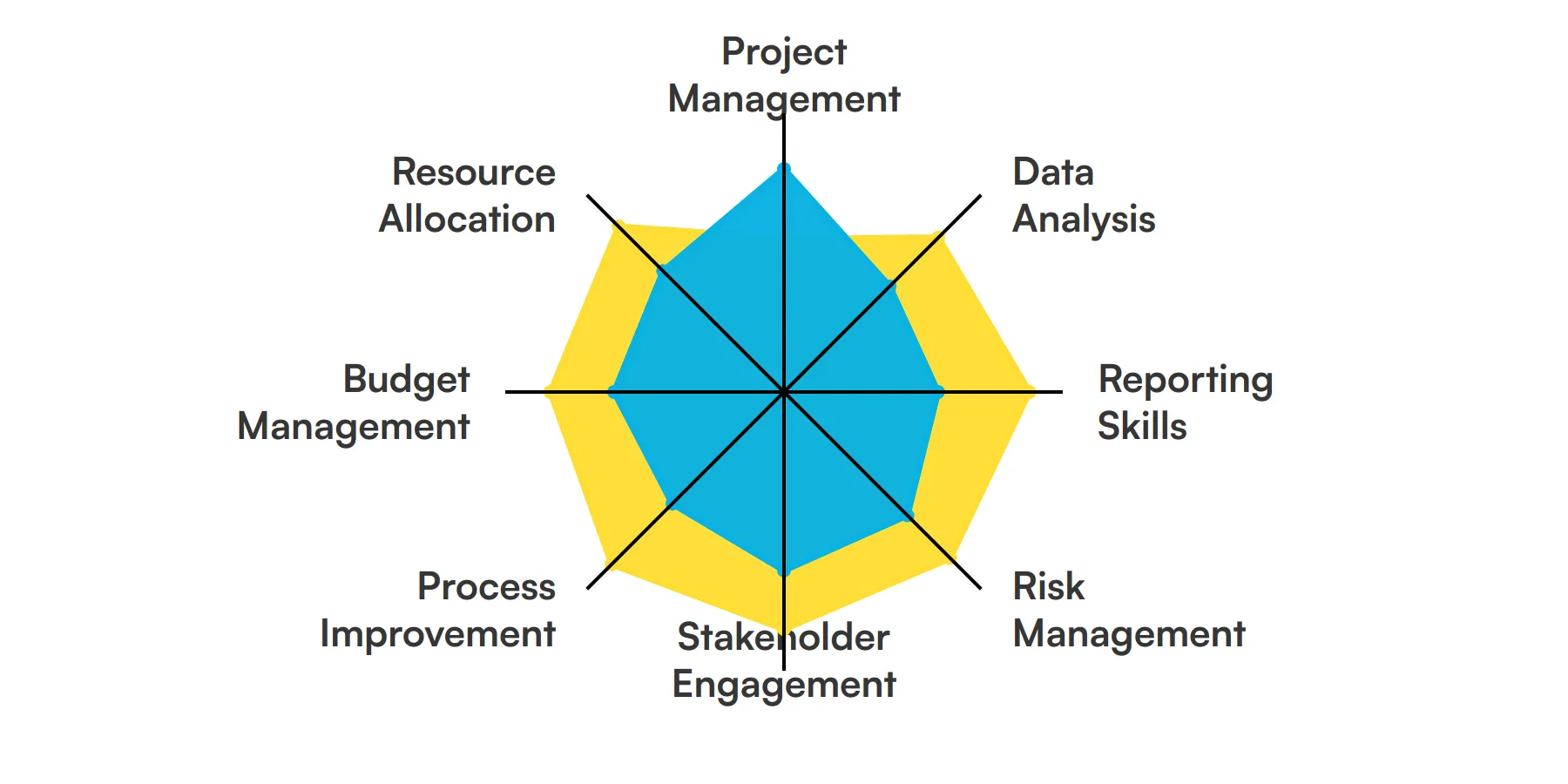
Project Management
A PMO Analyst must be adept at managing multiple projects, ensuring that each aligns with the strategic goals of the organization. This involves planning, executing, and closing projects efficiently while managing resources and timelines.
For more insights, check out our guide to writing a Project Manager Job Description.
Data Analysis
Data analysis is critical for a PMO Analyst to evaluate project performance and identify areas for improvement. By analyzing data trends and metrics, the analyst can provide actionable insights to optimize project outcomes.
Reporting Skills
Effective reporting is key for a PMO Analyst to communicate project statuses, risks, and opportunities to stakeholders. This skill ensures that all parties are informed and can make decisions based on the latest project data.
Risk Management
Identifying and mitigating risks is essential for maintaining project integrity and timelines. A PMO Analyst uses risk management techniques to foresee potential issues and implement strategies to address them proactively.
Stakeholder Engagement
Engaging with stakeholders effectively ensures that their needs are met and they are kept in the loop with project progress. This skill is crucial for a PMO Analyst to manage expectations and foster collaborative relationships.
Process Improvement
Continuous improvement of project management processes is a key responsibility of a PMO Analyst. By evaluating existing processes and implementing improvements, they help increase efficiency and effectiveness across projects.
Budget Management
A PMO Analyst must oversee project budgets to ensure financial resources are used effectively. This involves tracking expenditures, forecasting costs, and making adjustments to stay within budget constraints.
Resource Allocation
Effective resource allocation is crucial for the success of projects. A PMO Analyst ensures that human and material resources are optimally distributed among projects according to priorities and timelines.
10 secondary PMO Analyst skills and traits
The best skills for PMO Analysts include MS Project, Agile Methodologies, Communication Skills, Problem Solving, Change Management, Technical Writing, Presentation Skills, Conflict Resolution, Scheduling and Excel Proficiency.
Let’s dive into the details by examining the 10 secondary skills of a PMO Analyst.
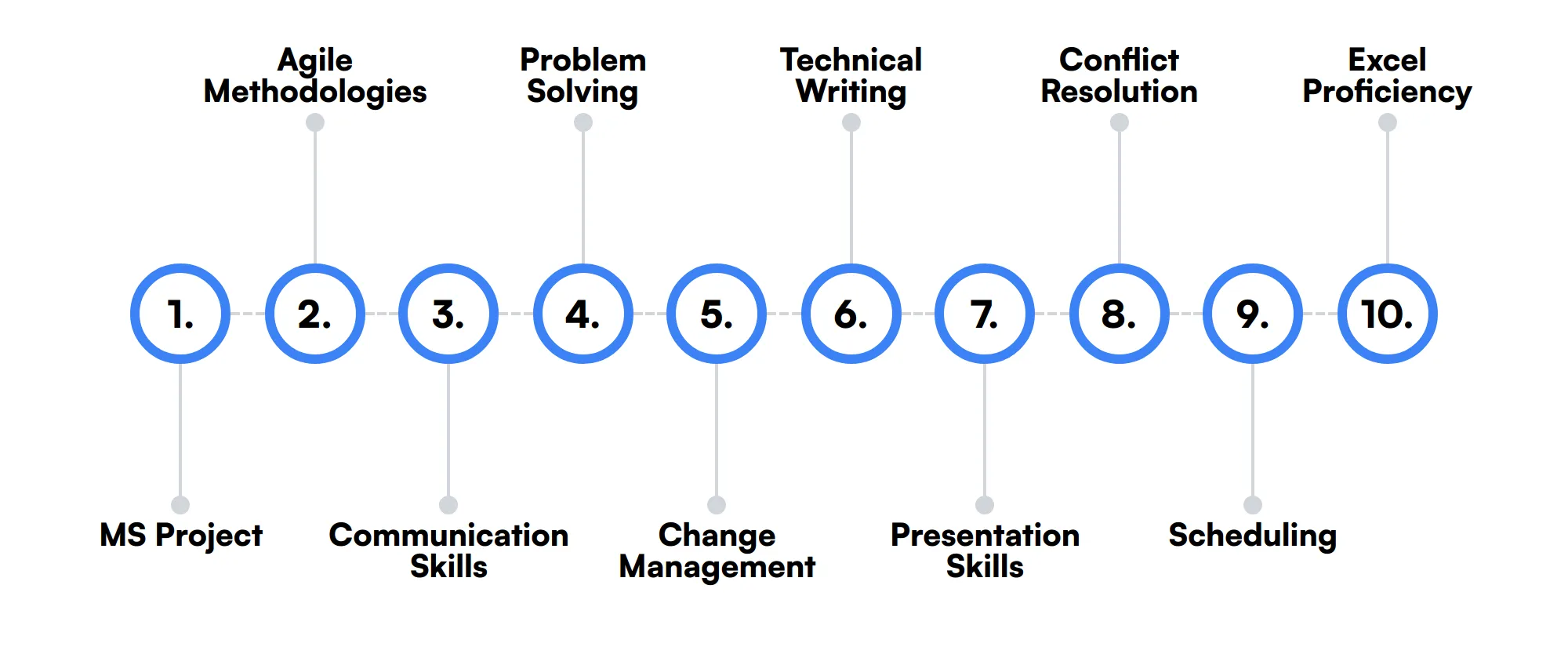
MS Project
Proficiency in Microsoft Project helps a PMO Analyst to plan, execute, and monitor project timelines and resources effectively.
Agile Methodologies
Understanding Agile methodologies is beneficial for PMO Analysts involved in projects where flexibility and iterative development are prioritized.
Communication Skills
Clear and effective communication is necessary for a PMO Analyst to articulate project goals, updates, and issues to team members and stakeholders.
Problem Solving
The ability to quickly identify problems and think through solutions is important for a PMO Analyst to ensure projects stay on track.
Change Management
A PMO Analyst often deals with changes in project scope or objectives and must manage these changes without disrupting project momentum.
Technical Writing
Technical writing skills are important for creating clear and concise project documentation, reports, and proposals.
Presentation Skills
The ability to present information clearly and persuasively is useful for a PMO Analyst when sharing insights and updates with stakeholders.
Conflict Resolution
Resolving conflicts efficiently ensures that project teams remain focused on their goals without interpersonal issues hindering progress.
Scheduling
Skill in scheduling is crucial for a PMO Analyst to manage project timelines effectively and ensure timely completion of project milestones.
Excel Proficiency
Advanced skills in Excel enable a PMO Analyst to manage and analyze large datasets, creating detailed reports and forecasts.
How to assess PMO Analyst skills and traits
Assessing the skills and traits of a PMO Analyst involves more than just glancing at a resume. It requires a deep dive into their capabilities in project management, data analysis, and more. Understanding how well a candidate can handle real-world challenges is key to a successful hire.
Traditional interviews often fall short in evaluating the practical skills of PMO Analysts such as risk management, stakeholder engagement, and resource allocation. This is where skills assessments come into play, offering a more objective measure of a candidate's abilities.
By incorporating Adaface assessments into your hiring process, you can significantly enhance the quality of your hires. These assessments are designed to mirror actual job tasks, ensuring that candidates are tested on relevant skills like budget management and process improvement. Employers who use Adaface have seen a 2x improvement in the quality of their hires.
Let’s look at how to assess PMO Analyst skills with these 6 talent assessments.
Project Management Test
Our Project Management Test evaluates a candidate's ability to oversee projects from start to finish, ensuring they can handle timelines, risk assessments, budget allocations, and stakeholder management effectively.
The test assesses project planning, risk analysis, resource management, and stakeholder engagement. It challenges candidates to demonstrate their proficiency in both agile and traditional project management methodologies.
Candidates who perform well on this test are adept at designing detailed project plans, managing changes, and resolving issues efficiently. They are capable of prioritizing tasks and managing resources to meet project deadlines and objectives.
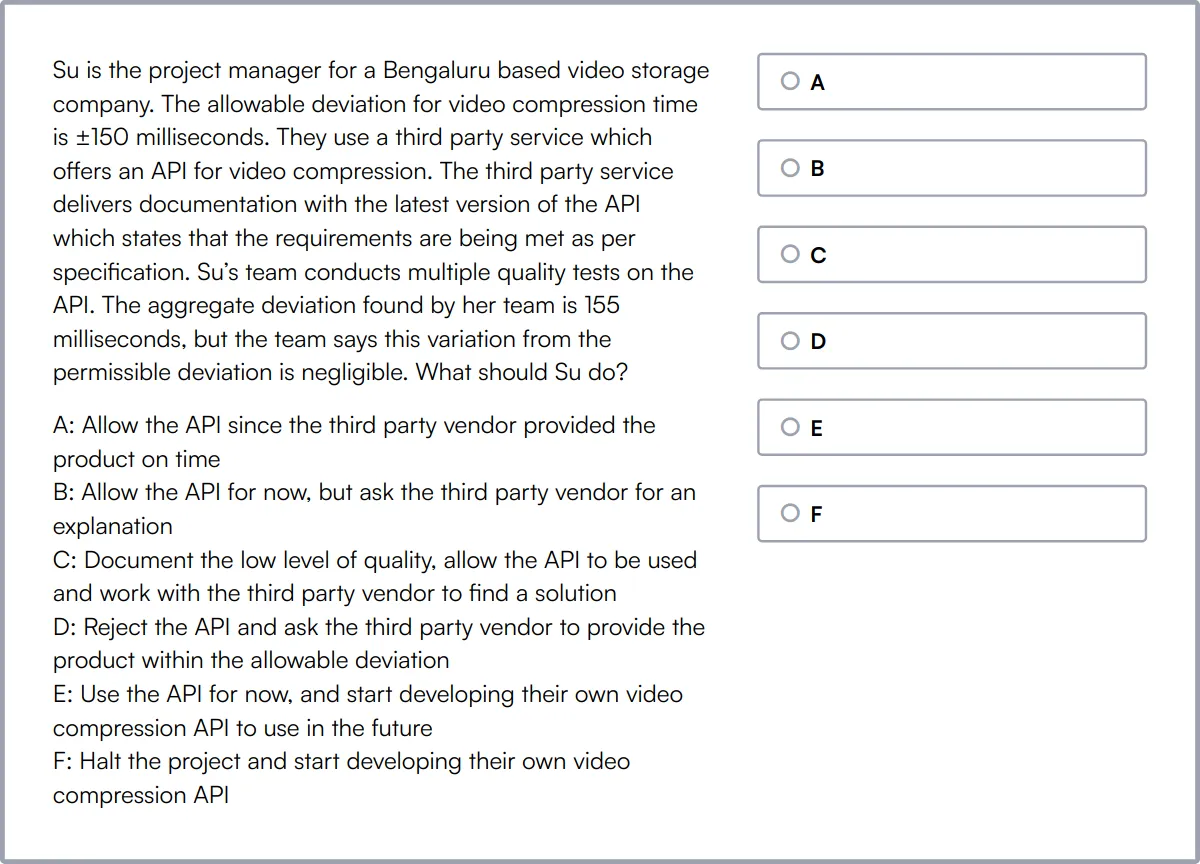
Data Analysis Test
Our Data Analysis Test screens candidates on their ability to manipulate, analyze, and interpret data, using scenario-based questions to evaluate their analytical skills.
This test covers data modeling, analysis, and interpretation skills, including SQL queries, data operations, and the use of popular data tools like Excel for business analysis.
Successful candidates will demonstrate a strong ability to extract insights from data sets, perform statistical analysis, and use data to make informed business decisions.

Business Analyst Excel Test
Our Business Analyst Excel Test assesses a candidate's expertise in utilizing Microsoft Excel for complex data analysis and financial modeling.
The test evaluates knowledge of Excel functions, formulas, pivot tables, data visualization, and SQL basics. It also tests candidates' logical reasoning and data manipulation skills.
High-scoring individuals are proficient in using advanced Excel features for data analysis, creating sophisticated reports and dashboards, and automating tasks with Macros and VBA.
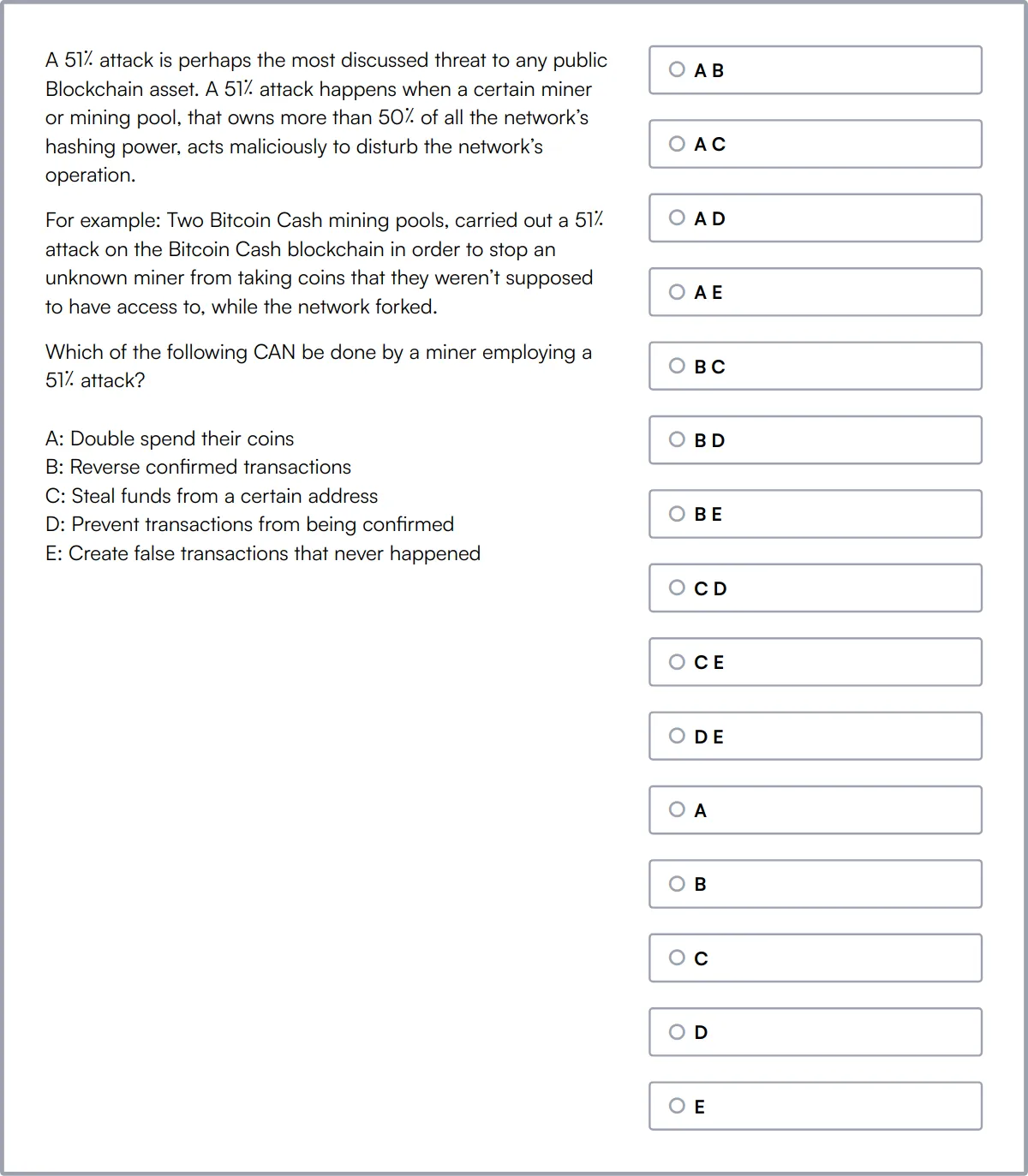
Data Interpretation Assessment Test
Our Data Interpretation Assessment Test focuses on a candidate's ability to analyze and draw meaningful insights from various data formats, such as graphs, charts, and tables.
The test challenges candidates to demonstrate their proficiency in reading data, interpreting complex visual data formats, and making logical inferences from them.
Candidates who excel in this test can effectively handle and interpret large sets of data, making them valuable for roles requiring strong analytical skills.
Communication Skills Test
Our Communication Skills Test evaluates a candidate's ability to communicate clearly and effectively in various professional scenarios.
The test assesses verbal and written communication skills, critical thinking, and situational judgement, ensuring candidates can navigate interpersonal interactions and complex communication challenges.
Effective communicators identified by this test are adept at conveying information clearly and persuasively, making them key assets in any team-oriented environment.
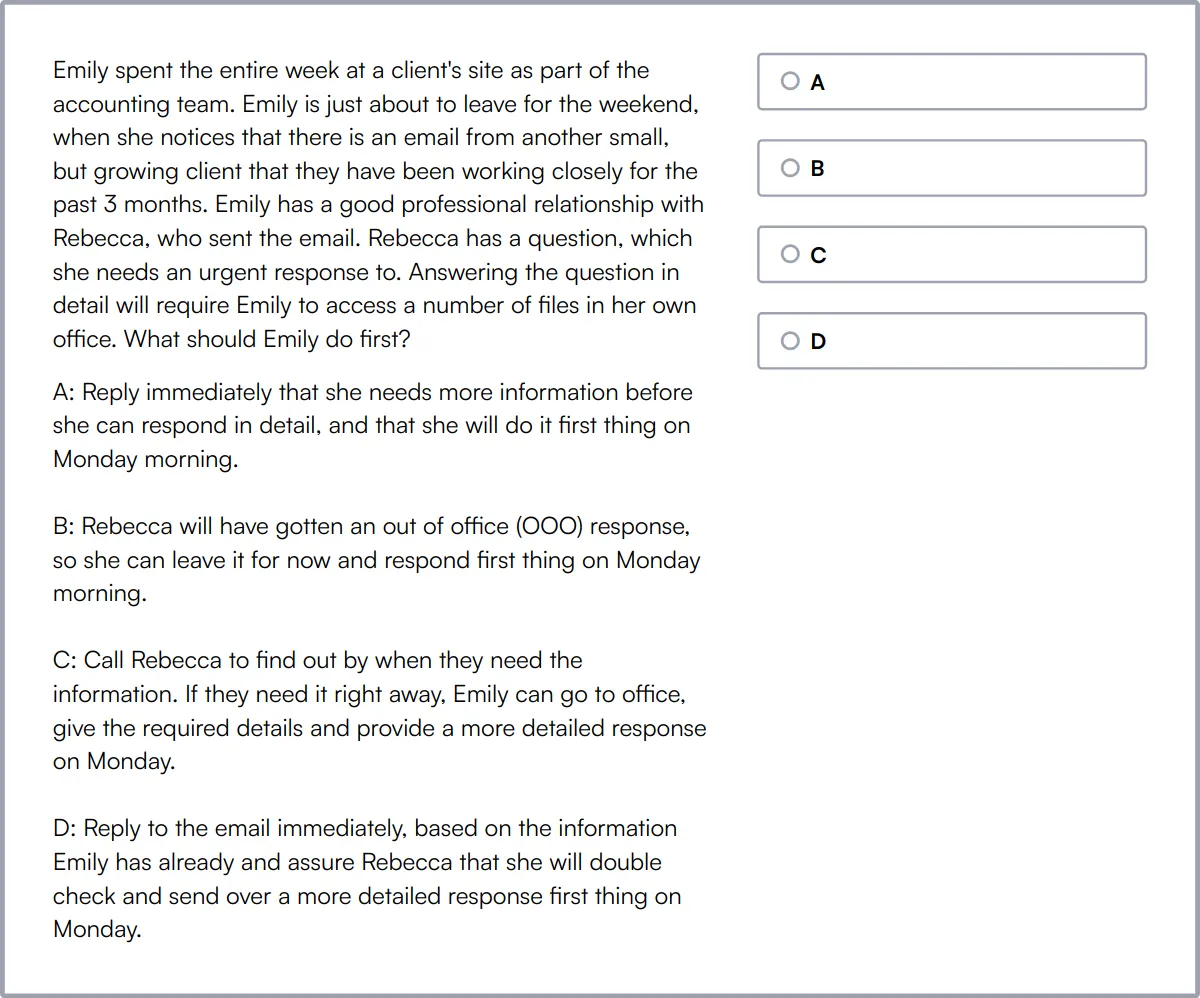
Financial Accounting Online Test
Our Financial Accounting Online Test measures a candidate's proficiency in financial reporting, accounting principles, and financial analysis.
This test evaluates understanding of financial statements, double-entry bookkeeping, financial ratios, and accounting principles. It also tests candidates' abilities in financial analysis and decision-making.
Candidates who score well are proficient in applying accounting standards, analyzing financial data, and providing accurate financial reports, which are essential for effective financial management.
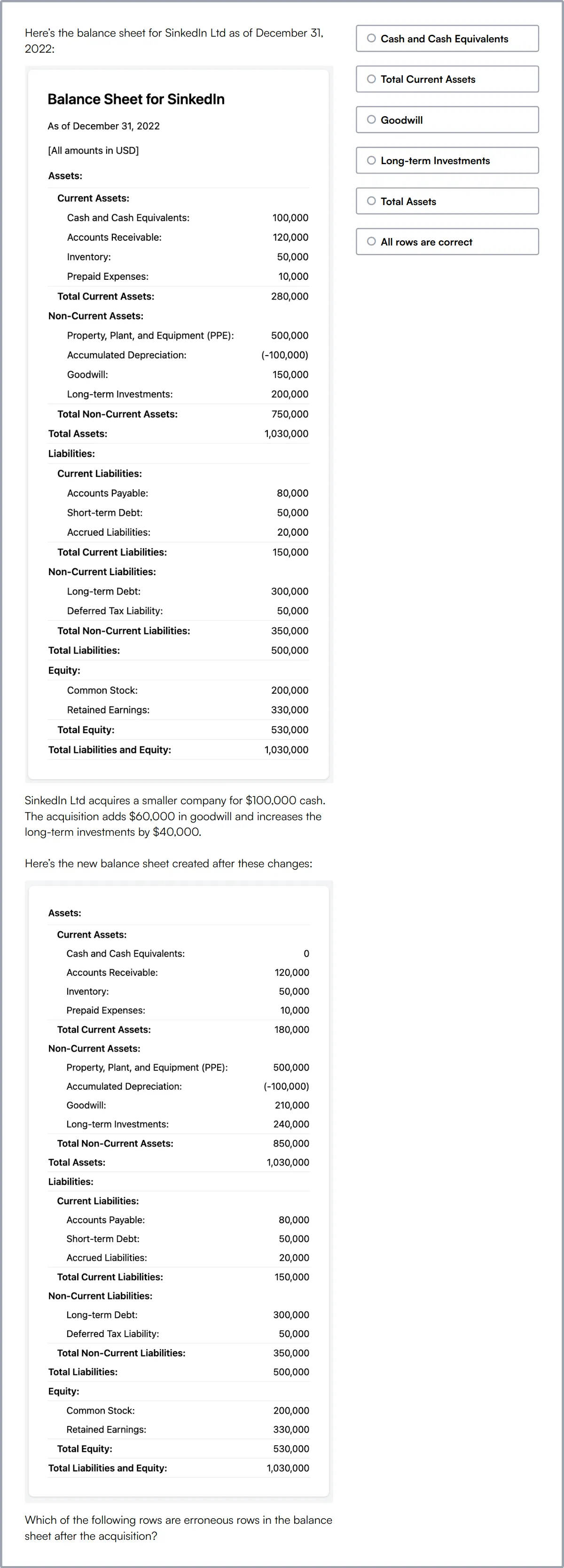
Summary: The 8 key PMO Analyst skills and how to test for them
| PMO Analyst skill | How to assess them |
|---|---|
| 1. Project Management | Evaluate ability to plan, execute, and finalize projects within deadlines. |
| 2. Data Analysis | Assess proficiency in interpreting complex data to inform business decisions. |
| 3. Reporting Skills | Check capability to create detailed, accurate, and insightful reports. |
| 4. Risk Management | Review effectiveness in identifying, analyzing, and mitigating risks. |
| 5. Stakeholder Engagement | Observe skills in managing and satisfying stakeholder expectations. |
| 6. Process Improvement | Determine aptitude for enhancing business processes for better efficiency. |
| 7. Budget Management | Test ability to plan, allocate, and control financial resources. |
| 8. Resource Allocation | Examine skill in optimally distributing resources for project success. |
Financial Analyst Online Aptitude Test
PMO Analyst skills FAQs
What are the key project management skills required for a PMO Analyst?
A PMO Analyst should be adept at planning, executing, and monitoring projects. They need to understand project lifecycle, manage timelines, and ensure projects align with business goals.
How can a PMO Analyst effectively use data analysis?
Data analysis is critical for a PMO Analyst to evaluate project performance, forecast outcomes, and support decision-making. Proficiency in tools like Excel and a strong grasp of statistical methods are necessary.
What reporting skills should a PMO Analyst have?
Effective reporting involves the ability to collect, analyze, and present data in a clear and concise manner. A PMO Analyst should be skilled in creating detailed reports and using reporting tools to communicate insights.
Why is risk management important for a PMO Analyst?
Risk management helps in identifying, analyzing, and mitigating potential risks in projects. A PMO Analyst uses this skill to prevent delays, cost overruns, and scope creep, ensuring project success.
How does stakeholder engagement impact a PMO Analyst's role?
Stakeholder engagement is key to ensuring project requirements are met and changes are communicated effectively. A PMO Analyst must be skilled in managing expectations and fostering collaboration among stakeholders.
What are some techniques for effective conflict resolution in project management?
Conflict resolution techniques include active listening, empathy, clear communication, and negotiation. A PMO Analyst uses these to resolve disputes and maintain a cooperative team environment.
How important are presentation skills for a PMO Analyst?
Presentation skills are important for a PMO Analyst to effectively communicate project status, proposals, and outcomes to stakeholders and team members, ensuring clarity and alignment.
What role does Excel proficiency play in a PMO Analyst's daily tasks?
Excel proficiency allows a PMO Analyst to manage and analyze large datasets, create dynamic reports, and perform financial modeling, which are essential for effective project management and decision support.

40 min skill tests.
No trick questions.
Accurate shortlisting.
We make it easy for you to find the best candidates in your pipeline with a 40 min skills test.
Try for freeRelated posts
Free resources



